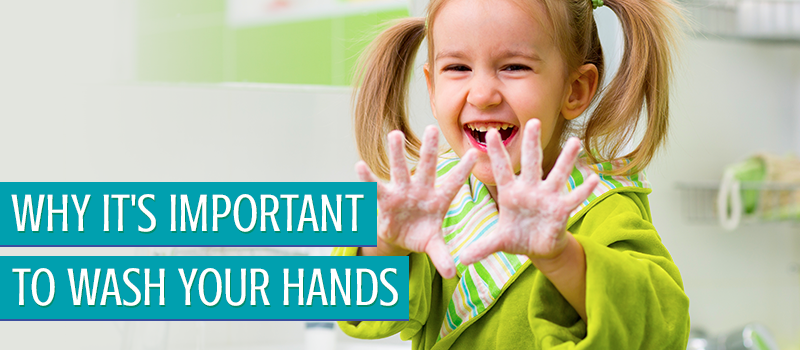Washing your hands isn’t just good advice. It’s the best advice you and your family can follow to prevent illness on a daily basis. Not only is it tremendously effective in reducing the spread of germs, it’s so simple that even preschoolers can be taught to do it correctly. (We’ll talk about correctly later.)
Scientists estimate that there are more than 1,500 microorganisms per square inch on your hands. Similarly, germs can congregate anywhere people touch – from door knobs and shopping carts to your computer’s mouse and your favorite coffee mug. It’s easy for germs to piggyback from an object you touch, onto your hand and onto whatever you touch next.
Although nearly everyone understands the importance of washing up before cooking or eating, it’s just as important to give your hands a scrub throughout the day. Many people touch their eyes, mouth or nose without realizing it. From there, it’s easy for the bacteria, fungi and viruses to enter a body and make you sick.
When to Wash Your Hands
When in doubt, wash your hands! This instills habits in your family to always lather up after these activities where germ transmission is easiest:
- After using the restroom or changing a diaper
- Before and after preparing raw foods
- Before eating
- After blowing your nose
- After working in dirty environments, such as gardens, garages and basements
- After shopping trips
Wash Your Hands Correctly
Believe it or not, a lot of people don’t wash their hands correctly, with many people rushing it or skipping steps. To properly wash your hands, use warm water to wet your hands, including wrists and between fingers. After lathering your hands, rub them together for 20 seconds – about long enough to sing “Happy Birthday” to yourself twice – making sure to cover all surfaces with soap.
Wash your hands to prevent disease transmission and keep your family safe. An extra 30 seconds at the sink can prevent days of illness!

